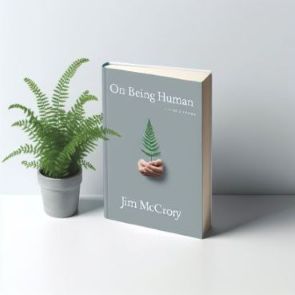
Why Do People Join Cults?
People do not join cults because of darkness, but because of what first feels like warmth otherwise, no one would join them. That insight explains a great deal. Many are drawn in by friendship, belonging, purpose, and meaning in a world that often feels confusing and cold. Over time, however, the reality changes. The warmth proves conditional, the truth is carefully constructed, and what once felt like light slowly gives way to fear, guilt, and control.
If a family member is caught in such a group, you are not alone, and you are not without influence. Still, the way forward is rarely straightforward.
Not All Cults Look Obvious
The word cult often suggests dramatic images of secret rituals or apocalyptic predictions. Most cults are far more subtle. Many hide behind the appearance of organized religion, tightly controlled ministries, or magnetic teachers who initially seem sincere and compassionate. They may appear moral, loving, and active in good works. This is precisely what makes them difficult to recognize, both for outsiders and for those already involved. These groups often meet real emotional or spiritual needs at first.
Yet beneath the surface, troubling patterns frequently emerge. Members are isolated from family, pressured into absolute loyalty, and manipulated through fear and guilt. Human leaders are elevated beyond question. Any disagreement is treated as rebellion or apostacy and met with warnings or punishment, both social and spiritual.
This is not the pattern we see in Jesus.
Christ Alone Is the Way
In John 14:6, Jesus said, “I am the way, the truth, and the life. No one comes to the Father except through me.”
He did not point people to an institution, a hierarchy, or a governing authority. He pointed them to Himself. As Paul wrote in 1 Timothy 2:5, there is one God and one mediator between God and humanity, Christ Jesus.
When a group claims exclusive access to God through its leaders, or demands loyalty to them as proof of loyalty to God, caution is necessary. In doing so, they replace Christ with human authority. They blur the distinction between the body of Christ and a branded organization. Jesus never required His followers to abandon their families, police one another’s thoughts, or silence their conscience for the sake of conformity.
What You Can Do
Keep the door open
Your loved one may not be receptive right now. They may see you as misguided or spiritually opposed. Even so, your steady and gentle presence may be the only unconditional love they experience. Keep the door open. High-control groups work hard to shut every other door, especially those leading back to family. Do not let that happen. Avoid arguing over doctrine unless they ask. Focus instead on the relationship. Let them know they are loved without conditions.
Do not imitate the control
Anger and ultimatums are understandable, but they rarely help. Responding with patience and kindness shows the contrast between conditional acceptance and genuine love. Jesus invited people to follow Him. He did not coerce them. Let your manner reflect that same spirit.
Ask thoughtful, gentle questions
Cults discourage questioning. You can help revive that freedom by asking sincere, non-threatening questions such as:
Can truth really be threatened by honest examination?
Why is Jesus called the mediator, yet others stand between you and God?
Would Jesus ever ask someone to abandon their family?
Let these questions rest quietly. Seeds often take time to grow.
Learn to recognize common signs
High-control groups often share recognizable traits:
- Leaders who cannot be questioned
- A strong us-versus-them mentality
- Restricted access to information
- Fear-based motivation and threats of punishment
- Shunning or social exile as discipline
- Claims that salvation exists only within the group
If your loved one is experiencing pressure to conform at the cost of relationships or conscience, they may be trapped in such a system.
When Awakening Begins
Many people leave cults not because of a single argument or fact, but because something deep within them feels wrong. They notice hypocrisy. They see compassionate people cast aside. They watch leaders prosper while members suffer. Leaving often comes with heavy loss, including community, identity, and spiritual certainty.
That is when your presence matters most.
You can be the one who does not say, “I warned you,” but instead says, “I am glad you are here.”
You can help them rediscover Jesus, not as a set of rigid rules imposed by others, but as the source of grace, truth, and freedom.
Contrast the behaviour of cults with that of Jesus parable of the Prodigal Son and the father and the resentful brother.
Hope Remains
Cults claim sole ownership of truth, yet the real Jesus has always been accessible. He walked among ordinary people, touched those cast aside, and welcomed honest doubt. He told His followers not to place their trust in human authority, but to follow Him. He did not create a closed system with hidden rules. He began a movement rooted in freedom and love.
Your loved one may still be in darkness, but light does not rush or force its way. It remains steady and patient.
Take time to read John 6:25–59 and ask yourself, what does God, and what does Jesus, truly require of me?
Image by Copilot








